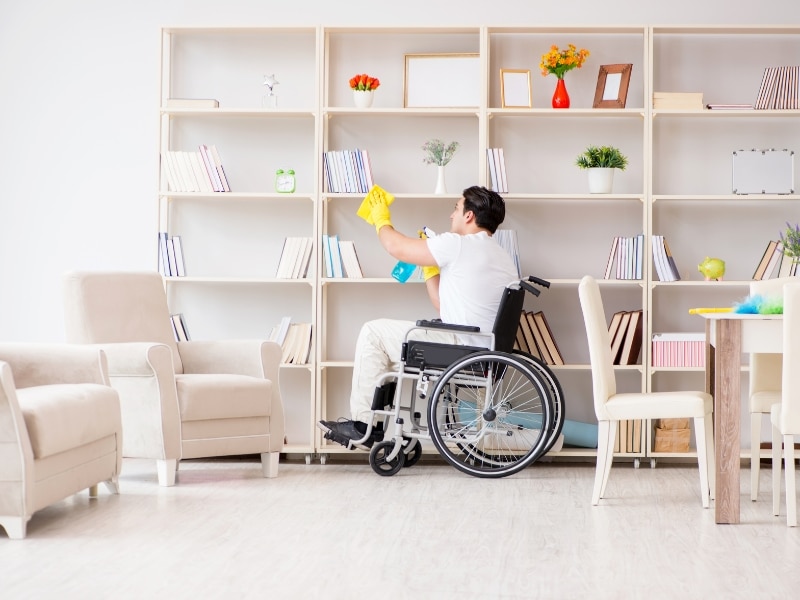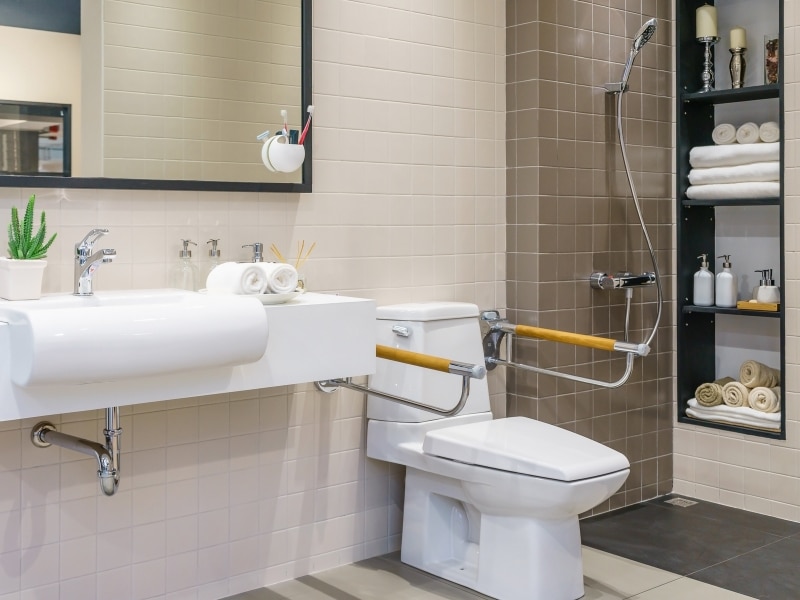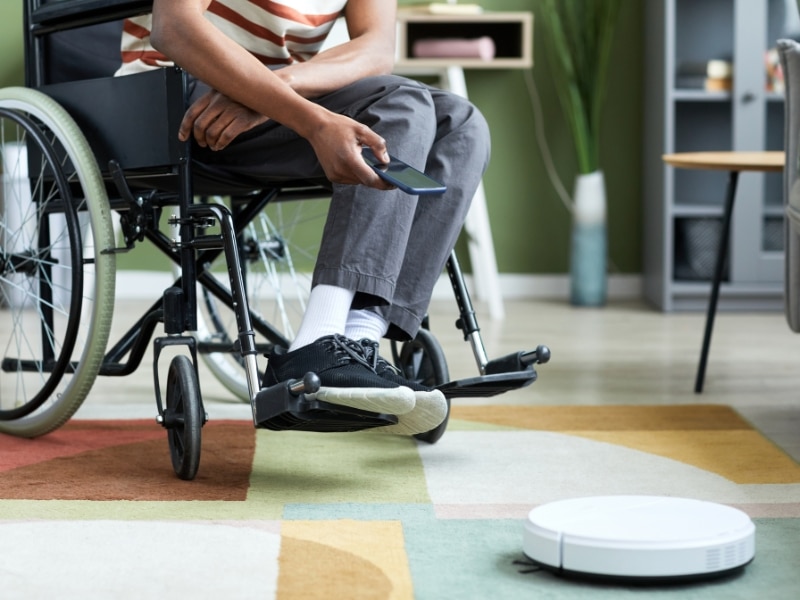
Maintaining independence is a vital goal for individuals with disabilities. Everyday chores, which many take for granted, can present significant challenges for people with a disability. However, with the proper support and resources, independence and disability can coexist successfully. This article explores various strategies, tools, and resources that can help individuals with disabilities maintain independence, enhancing their quality of life.
Can people with disabilities manage daily chores independently?
Managing daily chores independently is all about finding the right balance between capability and support. One practical approach is to break down tasks into smaller, manageable steps. This can make chores less overwhelming and more achievable. Additionally, creating a structured routine can help individuals with disabilities stay organised and on track with their daily tasks. Support workers can provide guidance and assistance when needed, allowing you to complete tasks efficiently and safely.
What tools and assistive devices enhance independence and disability management?
Several assistive devices can make daily chores more manageable and safer for people with disabilities.
- Grab bars and handrails: These are essential for preventing falls and providing stability, especially in bathrooms and kitchens.
- Reachers and grabbers: These are useful for picking up items from the floor or reaching high shelves without straining.
- Adaptive utensils: These include specially designed knives, forks, and spoons that are easier to grip and use for individuals with limited hand mobility.
- Voice-activated assistants: Devices like smart speakers can help manage daily tasks through voice commands, making it easier to set reminders or control home appliances.
- Wheelchair-friendly furniture: Adjustable-height desks and tables make it easier for wheelchair users to perform tasks comfortably.
How can home modifications help maintain independence and disability support?
Accessible home modifications can significantly enhance the ability of people with disabilities to carry out daily chores.
- Ramps: Installing ramps instead of steps can make a home more accessible for individuals using wheelchairs or walkers.
- Widened doorways: Widened doorways allow easier access for wheelchairs and mobility aids.
- Bathroom modifications: Walk-in showers, shower benches, and handheld showerheads can make personal care tasks more manageable.
- Lowered countertops: Adjusting the height of countertops in kitchens and bathrooms can make these spaces more accessible.
- Lever-handle faucets: Easier to use than traditional twist faucets, lever handles require less skill.

Do structured routines and planning help maintain independence for people with disabilities?
Structured routines and careful planning can make managing chores more feasible for individuals with disabilities.
- Daily schedules: Creating a daily schedule can help individuals with disabilities manage their time effectively and ensure all tasks are completed.
- Task lists: Breaking down chores into smaller tasks and creating checklists can make each task more manageable and less overwhelming.
- Time management tools: Using timers and alarms can help individuals stay on track and manage their time efficiently.
- Prioritisation: Focusing on the most critical tasks first can help ensure that essential chores are completed, even if time or energy is limited.
- Consistent routines: Establishing consistent routines can create a sense of stability and predictability, making daily tasks easier to manage.
What are some techniques for adapting household tasks to different disabilities?
Adapting household tasks to suit different disabilities can significantly improve independence.
- One-handed techniques: For individuals with limited use of one hand, using cutting boards with spikes to hold food or jars with lids that open one-handed can be helpful.
- Seated tasks: Performing tasks while seated can be less tiring for individuals with mobility issues or limited endurance.
- Ergonomic tools: Tools designed to reduce strain, such as ergonomic knives or gardening tools, can make tasks easier for individuals with limited strength or dexterity.
- Task adaptation: Modifying tasks to suit individual abilities, such as using electric can openers instead of manual ones, can help maintain independence.
How can technology assist in maintaining independence while doing chores?
Assistive devices and technologies are designed to support and enhance an individual’s functioning and independence.
- Smart home devices: Devices like smart thermostats, lights, and locks can be controlled remotely or with voice commands, making home management easier.
- Mobile apps: There are various apps designed to assist with task management, medication reminders, and communication.
- Telecare systems: These systems can monitor safety and provide emergency assistance, giving individuals and their families peace of mind.
- Robotic vacuums: These devices can help keep floors clean with minimal effort from the user.
- Online shopping: Delivery services for groceries and household items can reduce the need for physical trips to stores.

What community resources are available to support independence and disability management?
Various community resources can provide essential support for individuals with disabilities.
- Local disability services: Many communities have organisations that offer support services, including transportation, personal care, and social activities.
- Support groups: Joining a support group can provide emotional support and practical advice from others facing similar challenges.
- NDIS support: The National Disability Insurance Scheme (NDIS) provides funding for various support services, helping individuals with disabilities live independently.
- Community centres: These centres often offer activities and programs specifically designed for individuals with disabilities.
- Volunteer services: Many communities have volunteer organisations that offer assistance with daily tasks and companionship.
What role do support workers play in encouraging independence for people with disabilities?
Support workers play a crucial role in helping individuals with disabilities achieve and maintain independence.
- Personal care assistance: Support with hygiene tasks to uphold dignity.
- Task management: Plan and organise daily chores efficiently.
- Skill development: Teach essential skills like cooking and budgeting.
- Emotional support: Offer companionship to boost confidence.
- Advocacy: Ensure access to necessary services and support.
Encouraging independence through support and resources
Independence is a fundamental goal for individuals with disabilities, and with the proper support and resources, it’s attainable. By utilising assistive devices, making home modifications, creating structured routines, and leveraging community resources, people with disabilities can manage their daily chores independently and effectively. Support workers play a crucial role in this process, providing essential assistance and encouragement through assistance with daily life NDIS services.
At Choice Care Australia, we are dedicated to supporting individuals with disabilities in Sydney, helping them maintain their independence and live fulfilling lives. As a registered NDIS service provider, we offer a comprehensive range of disability support services tailored to meet individual needs and goals. Whether it’s assistance with daily living tasks, community nursing care, or home modifications, Choice Care Australia is here to help. Contact Choice Care Australia today to learn more about our services and how we can support your journey towards greater independence.


